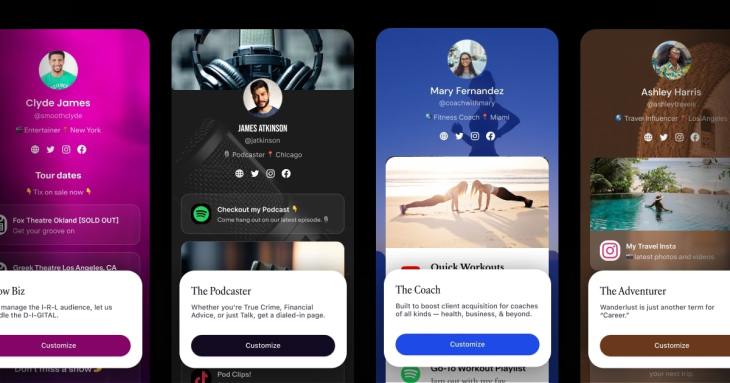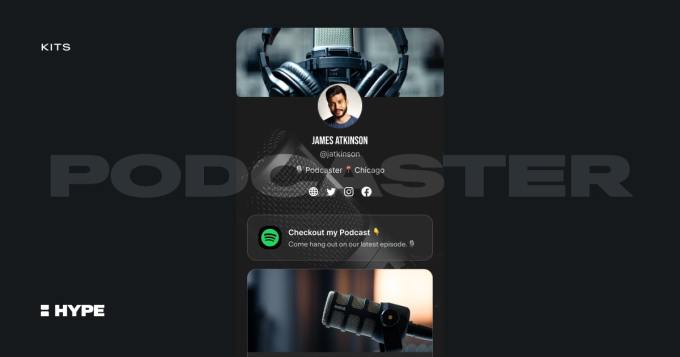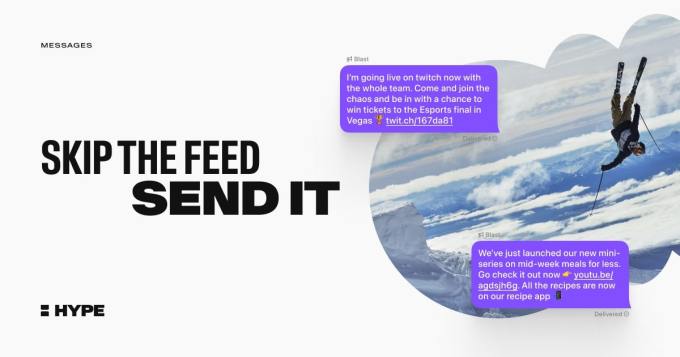Creator CRM company Pico rebrands to Hype, raises $10 million

Creator CRM company Pico is now rebranding as Hype and launching Hype Kits, which are pre-designed web templates for different kinds of creators looking to build a landing page.
The company is also raising $10 million in Series A funding led by King River Capital with other investors including Bullpen Capital, Precursor Ventures, Bloomberg Beta, Tapestry VC and Sterling Road. This brings the platform’s total fundraising to $20 million.
The startup has gone through a rebranding a few times. It was founded as PennyPass back in 2016 by Stanford grads Nick Chen and Jason Bade. By 2019, the company morphed into Pico, with seed funding from investors working for companies like Stripe and Precursor.

Image Credits: Hype
Hype’s core strength has been offering CRM tools to creators. In a conversation with TechCrunch, Chen said that initially the company focused on journalists and helped them get sign-ups on their blogs to monetize that. However, in the last few years, he saw the rise of link-in-bio tools like Linktree. It now aims to put that capability at the front.
“We already offered a link in the bio tool through the landing page builder. Now, we are introducing different kits through this Hype rebranding to make it easier for different creators to quickly get started with us,” Chen said.
Hype Kits offer things like a quick landing page and a drag-and-drop webpage builder. Moreover, it offers CRM tools like email and phone sign-up boxes. Chen says that the ability for creators to collect the email and phone number of their fans and send special messages is particularly important.
The startup also offers revenue tools to collect tips and sell subscriptions or experiences. Chen noted that creators have made $30 million in revenue and collected more than four million email and phone contacts through Hype’s tools. Hype takes a 5% cut of all payments made out to creators. The company is not profitable yet but aims to reach that mark by mid-2024.

Image Credits: Hype
Chen emphasized that because of platform shifts and events like the fear of the TikTok ban, creators have to rely on different tools to monetize their skills. He mentioned that having an understanding of your fan base and their contacts makes it easier to move to different avenues of money making.
“The creator economy is converging with the small business economy. Entrepreneurs today are launching brands and products with content and community at the core of their business. Long gone are the days of social media serving as just a post-launch megaphone. We designed Hype to accelerate this movement and give creators of all types the necessary audience engagement and revenue tools previously only available to larger businesses.” Chen said.
The notion of comparing creators to small businesses seems to be a new trend. Recently, Block-owned music streaming service Tidal also compared artists to budding businesses and said the company aims to build tools for them to manage different processes. Other companies like Visa and Mastercard have also echoed the same sentiment.
However, there is a lot of competition in the space trying to help creators make money. There are link-in-bio startups that gives tools for monetization, including Australia-based Linktree, a16z-backed Beacon and CRV and Crossfeed Ventures-backed Snipfeed. Then, there are Patreon competitors like Fanfix for Gen Z creator monetization and a16z-backed Fanhouse — both of which bank on non-NSFW content.
Chen said that while Hype doesn’t want to be a content hosting platform and take editorial decisions, it wants to build a more powerful CRM tool in the coming months for creators to build a better fanbase.

